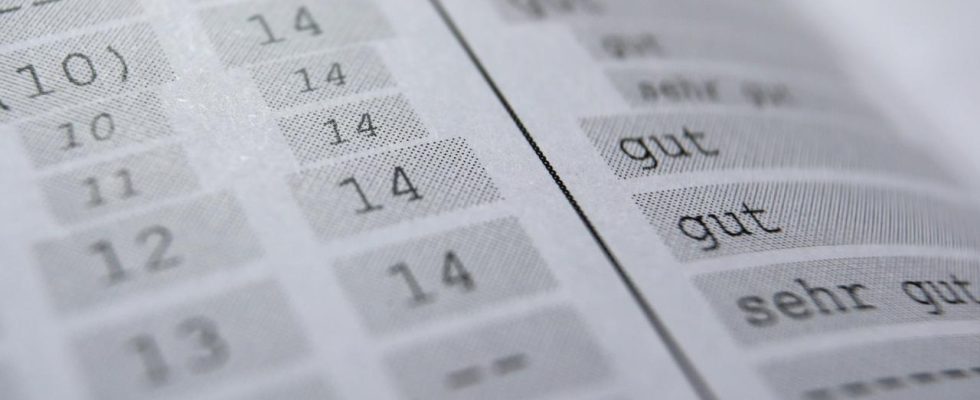“Due to dyslexia, spelling achievements were not evaluated”: Is such a note in the high school diploma discriminatory or justified? The Federal Constitutional Court is deciding on this today.
The judgment will be of great practical relevance. The three plaintiffs from Bavaria represent thousands of children and young people with dyslexia. In Bavaria alone, around 10,000 students are considered dyslexic.
Dyslexia is more than just a reading and spelling problem. This is emphasized by Tanja Scherle, chairwoman of the Federal Dyslexia Association. “The difference from reading and spelling weakness is that reading and spelling weakness can be temporary and has different causes than dyslexia. Dyslexia remains lifelong.”
Plaintiff: Note is discriminatory
Dyslexia is a reading and writing disorder. The disease repeatedly leads to psychological problems. Those affected are often afraid of school and exams and often withdraw.
The three plaintiffs were diagnosed with dyslexia by a specialist. They graduated from high school in Bavaria in 2010. In the high school diploma it was noted: “Due to dyslexia, which was diagnosed by a specialist, spelling skills were not evaluated.” The plaintiffs believe that this should not be stated in the certificate. The note is discriminatory.
Transparency and Equal opportunity?
Michael Piazolo, Bavarian State Minister for Education and Culture, contradicts this. A note that the spelling performance of students with dyslexia is assessed differently or not at all must be included in the certificate for various reasons. “Clarity and transparency on the one hand, but also equal opportunities. At the Abitur we usually have an objective examination that is the same for everyone. Here we deviate from that. It is then a different standard.”
This is how the administrative courts have seen it so far. Most recently, the Federal Administrative Court in Leipzig rejected the lawsuits. Dyslexia is legally recognized as a disability. But if an exam is made easier, it can still be included in the certificate. This is not a disadvantage, because it is not about documenting disabilities, but about making the certificate more transparent.
Minister of State Piazolo does not want to accept poorer opportunities on the labor market as an argument. The certificate simply creates clarity.
Poorer chances for applications
Attorney Thomas Schneider has represented the three plaintiffs for more than twelve years. He refers to the Basic Law, according to which no one may be disadvantaged because of their disability. If the spelling of dyslexics is not assessed, then no note should be written on the certificate.
“If someone reads something like that, be it at the university, at the training center or at an employer where I’m applying, they immediately ask questions during the written application process. That means: There’s a risk that you’ll be sorted out immediately a certificate is much greater than a normal certificate that every other student receives.”
So can the state write comments about making exams easier in the certificate? Or is this unconstitutional because otherwise students with dyslexia would be disadvantaged? The Federal Constitutional Court will answer these questions in its ruling.

